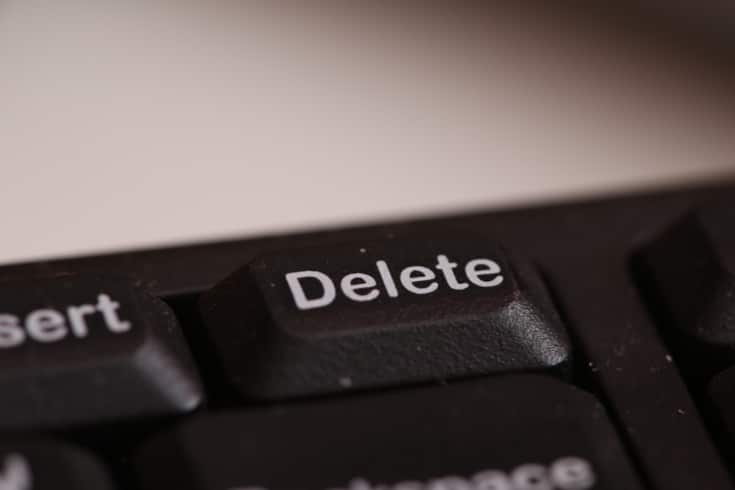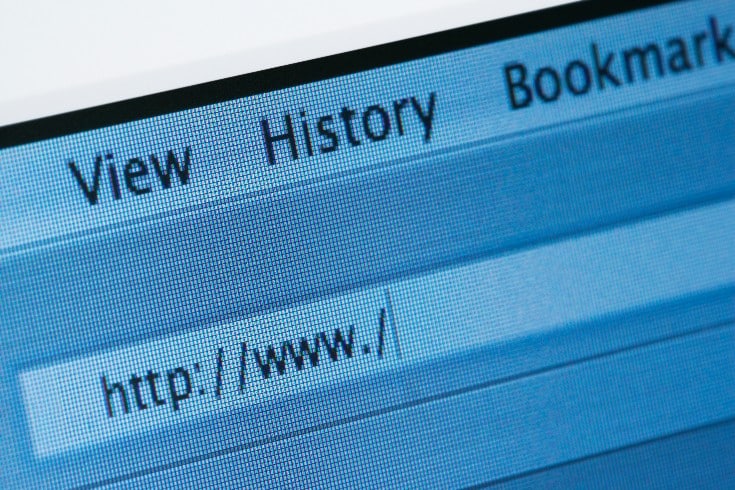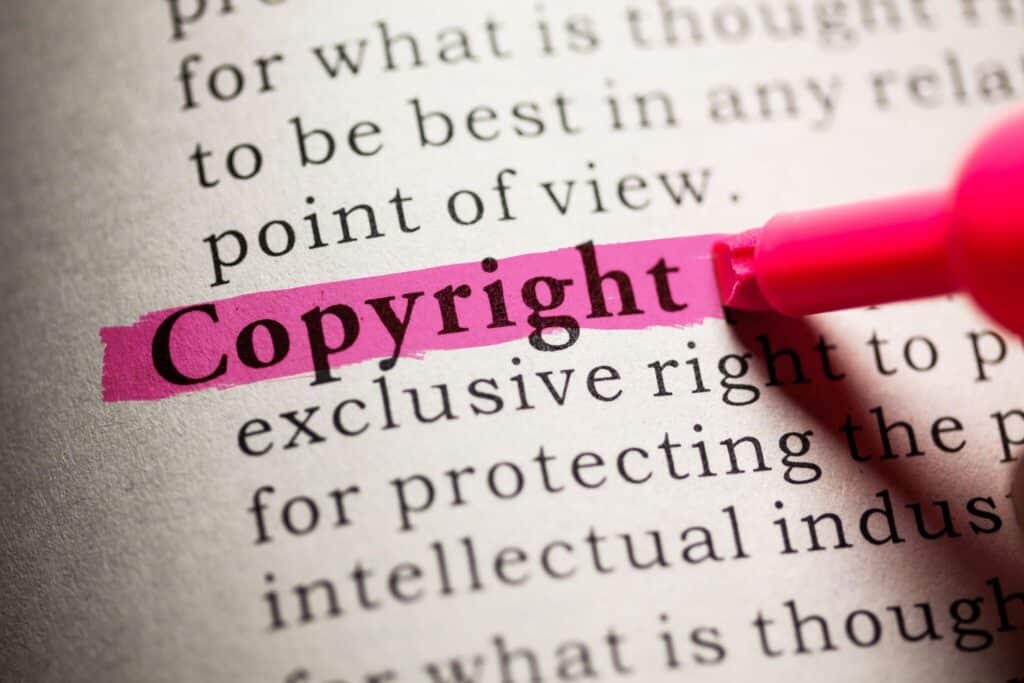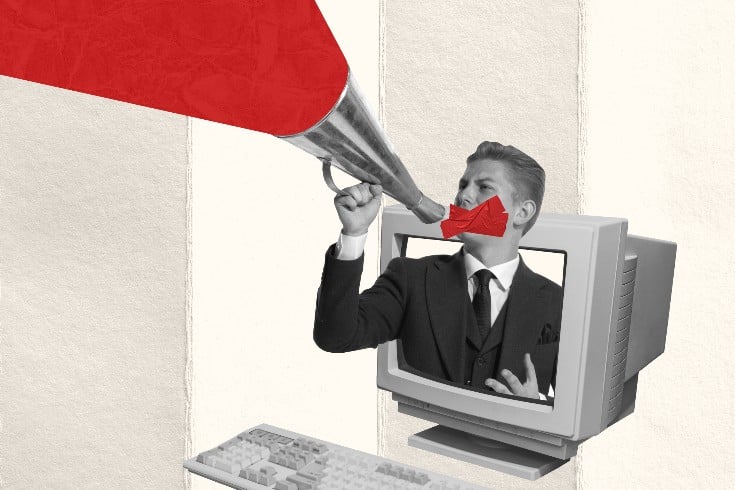Explaining the 'Japanese Provider Liability Limitation Law' and Requests for Transmission Prevention Measures

If you are defamed online or your privacy is exposed, it is crucial to promptly remove the offending content. If left unaddressed, the situation could escalate and potentially cause significant damage.
There are three methods to request the removal of such content.
In this article, we will explain the Japanese Provider Liability Limitation Act and one of the measures adopted to remove posted content, the request for transmission prevention measures. We will illustrate with specific case examples and explain under what circumstances a provider may be held liable for damages.
What are the Three Types of Article Deletion Requests?
Typically, there are three methods to request the deletion of an article:
- Requesting deletion from the site operator or server operator
- Requesting deletion through the court
- Requesting transmission prevention measures from the site operator or server operator
The first method, requesting deletion, is usually done through a “deletion request form” set up on each bulletin board or SNS. For example, in the case of Instagram, we explain in detail below.
https://monolith.law/reputation/instagram-comment-delete[ja]
The second method, requesting deletion through the court, involves a procedure called a provisional disposition. We also explain this in detail in the article below.
https://monolith.law/reputation/slander-delete-law[ja]
Finally, the third method, requesting transmission prevention measures, is done according to the procedure established under the “Japanese Law on Limitation of Liability for Damages of Specified Telecommunications Service Providers and Disclosure of Sender Information”, commonly known as the “Japanese Provider Liability Limitation Law”.

Japanese Provider Liability Limitation Act
The term “transmission prevention measures” refers to the removal of posts that defame or infringe on privacy on the internet by providers. The Japanese Provider Liability Limitation Act grants the right to request transmission prevention measures and the disclosure of sender information to the claimant, while recognizing and limiting the liability of the provider who failed to stop the circulation of such information.
The Act that Clarifies the Scope of Provider Liability
In the past, there were no clear legal provisions for the removal of posts or the disclosure of sender information when rights were infringed on the internet. The location of liability for compensation was also ambiguous, leaving providers struggling to respond.
Due to the lack of clear legal provisions, there was a possibility of being sued by the claimant if the request for post removal or sender information disclosure was refused, and conversely, by the sender if the request was complied with. With the enactment of the Japanese Provider Liability Limitation Act, uniform standards have been established for post removal and sender information disclosure.
The purpose of the Japanese Provider Liability Limitation Act is to promote the smooth and healthy use of the internet by encouraging quick and appropriate responses by providers, while respecting the interests of claimants, senders, and providers, through the clarification of these standards.
Transmission Prevention Measures and Liability for Damages
Exemption from Liability for Damages for Providers
Under the Japanese Provider Liability Limitation Act, if a request for transmission prevention measures is made and it is clear that the information infringes on the rights of others, the provider must take voluntary transmission prevention measures to avoid liability for damages in relation to the claimant, when there is “a reasonable reason to acknowledge that they could have known that the rights of others were being infringed” (Article 3, Paragraph 1, Item 2 of the Act).
As for liability for damages to the sender, it is not exempted as a rule, but it is stipulated that the obligation to compensate for damages is exempted only when the following requirements are met:
- When there is a reasonable reason to believe that the rights of others have been infringed (Article 3, Paragraph 2, Item 1 of the Act)
- When the sender is notified that there has been a request for the removal of illegal information from the person claiming their rights have been infringed, and there is no rebuttal within 7 days (the same paragraph, Item 2)
Please note that “no rebuttal” in the same paragraph, Item 2, means not agreeing to the removal.
What is a Provider?
In the Japanese Provider Liability Limitation Act, “providers” are site operators and server operators, also referred to as “specific telecommunications service providers”. They are defined in Article 2 of the Act as “those who mediate the communication of others using telecommunications equipment provided for specific telecommunications, such as those who perform web hosting and administrators of electronic bulletin boards”.
To request transmission prevention measures, a request form for transmission prevention measures is sent to the provider. However, only the person whose rights have been infringed and lawyers, due to the legal nature of the case, can make a request for transmission prevention measures. According to Article 72 of the Japanese Attorney Act, it is not possible for anyone other than a lawyer to handle legal matters as a job. Therefore, caution is required as it would be considered unauthorized practice of law if a defamation countermeasure operator or similar entity were to act on behalf of the request for transmission prevention measures.
Transmission Prevention Measures and Providers
Upon receiving a complete set of transmission prevention request forms, the provider will review the “rights-infringing information” that has been applied for. Not all information posted online will be removed as per the victim’s wishes, as certain rights are guaranteed by freedom of expression. It is up to the provider to determine whether removal is appropriate under the Japanese Provider Liability Limitation Law and to make the selection.

Therefore, for example, when a transmission prevention measure is requested for “content that infringes on privacy rights”, the provider must consider whether the article in question truly infringes on the applicant’s privacy rights. If it is determined to be an infringement of privacy rights, the provider may be liable for damages if they do not take transmission prevention measures (Article 3, Paragraph 1 of the law). Also, even if such measures are taken, they will not be liable for damages from the sender if they fall under Article 3, Paragraph 2, Item 1 of the law.
Confirmation of Intent (Inquiry) by the Provider
Upon receiving a request, the provider will, in principle, conduct a confirmation of intent (inquiry) to the sender asking “Is it okay to delete this article?”. This confirmation is carried out by means such as mail, and the deadline for confirmation is 7 days (2 days in the case of revenge porn damage). If there is no response from the sender within the deadline, the provider can delete the article without being liable for damages to the sender.
If the sender cannot be identified, this confirmation process will not be carried out. Also, the sender may argue against the deletion of the article, i.e., they may not agree to the deletion. However, as stipulated in the Provider Liability Limitation Law, if there is “a reasonable reason to believe that rights are being infringed”, the provider will be exempt from liability for damages even if they decide to delete the article.
On the other hand, if there is not enough information to determine that the content infringes on privacy rights, it will not fall under “a reasonable reason to believe that rights are being infringed”. Therefore, the provider will either wait and consider the risk of litigation from the sender, or take transmission prevention measures considering the risk of litigation from the applicant.
Article Deletion Decision
Whether or not the provider’s liability for damages is limited by the Provider Liability Limitation Law is ultimately determined by the court. Whether certain information constitutes defamation or privacy infringement, and whether the provider is liable for any action or inaction, depends on the content of the information, the personalityistics of the place where the information was posted, the sender’s response to the information, the applicant’s response, and the provider’s response. Also, the criteria for determining defamation and privacy infringement may change with changes in the social environment.
Therefore, it is not guaranteed that the article will be deleted just by sending a request form. Whether or not there is an infringement of rights is determined by the provider, and the Provider Liability Limitation Law does not even stipulate an obligation to respond to transmission prevention requests.
In other words, the final decision on whether or not to delete an article is left to the provider, and there are many cases where they do not comply with the deletion.
Article Deletion through Transmission Prevention Measures

While it’s not guaranteed that your request will always result in deletion, if the infringement of rights is clear and the documents are properly prepared, there is a high likelihood that the provider will promptly delete the article. On the other hand, if it’s difficult to determine whether there’s an infringement of rights, the chances of the article being deleted are inevitably lower.
When Article Deletion is Permitted
In another article on this site, the following case is discussed:
The defendant, a professional photographer, downloaded a photo of two marching penguins from a website without the plaintiff’s permission. After removing the plaintiff’s name from the image, the defendant first cropped out the penguin on the right side of the screen, then the penguin on the left side. These two cropped images were then uploaded and used as profile pictures for an online karaoke service account.
Despite the fact that the first image was made unavailable due to a transmission prevention measure taken by Smule, the company operating the online karaoke service, at the plaintiff’s request, the defendant further modified and uploaded the second image. The plaintiff claimed that the defendant had acted with reckless disregard for the possibility of infringement in the first instance, and with definite intent in the second instance, and sought damages for the malicious act. The reason for the second infringement is unclear.
In this case, the defendant was ordered to pay a total of 712,226 yen, which included the equivalent of image usage fees based on copyright infringement (162,000 yen), certified mail costs (2,226 yen), provisional disposition application fees (270,000 yen), preservation execution costs (108,000 yen), attorney fees (70,000 yen), and consolation money based on infringement of author’s moral rights (100,000 yen). (Tokyo District Court, May 31, 2019 (Gregorian calendar year))

In this case, the infringement was a clear violation of the author’s moral rights, which may have made it easier for the operator to delete the content.
When Article Deletion Was Not Granted
There was a case where the plaintiff demanded Yahoo Japan Corporation, which manages and operates the Yahoo! Finance bulletin board, to delete a posted article on the site based on personality rights. The plaintiff also claimed that Yahoo Japan Corporation’s refusal to delete the article constituted a tort, and demanded compensation for emotional distress under Article 709 of the Japanese Civil Code (Minpō).
The plaintiff’s attorney, who was appointed by the plaintiff, sent a document to the defendant stating:
“The plaintiff, a former executive director of Company A, has had his personality rights and reputation severely violated due to false information about him being a Korean resident in Japan.”
Dated June 22, 2017
The document requested measures to prevent the transmission of the article in question.
In response, Yahoo Japan Corporation sent a document stating:
“We have carefully considered the post you pointed out, but at this point, we have not determined that deletion or other measures are appropriate.”
Dated September 15, 2017
As a result, the plaintiff filed a lawsuit on November 9.
The plaintiff, who holds Japanese nationality, acknowledged that the posted article contained false facts about his name and origin/nationality. Despite the defendant’s argument that the plaintiff’s social reputation had not been diminished, the court stated:
“The issue with the posted article is not whether it lowers the plaintiff’s social reputation, but that it presents false facts about the plaintiff’s name and origin/nationality. This infringes on the plaintiff’s personal interest in having his name and origin/nationality correctly recognized by third parties.”
And:
“Yahoo Japan Corporation can be considered to have not deleted the posted article because there were no previous court cases ordering the deletion of posted articles based on personality rights infringement. However, even if there were no such previous cases, the defendant should have been able to recognize that they had a moral obligation to delete the posted article once they knew it contained false facts about the plaintiff’s name and origin/nationality. However, the defendant did not delete the posted article, so it can be said that the defendant was negligent in making that decision. Therefore, the defendant’s act of not deleting the posted article constitutes a tort under Article 709 of the Civil Code.”
Sendai District Court, July 9, 2018 (Heisei 30)
The court ordered Yahoo Japan Corporation to pay a total of 154,838 yen as compensation for emotional distress from July 1, 2017, about a week after the documents were sent and when it could be presumed that the plaintiff became aware of the infringement of his personality rights, until the end of the oral argument of the lawsuit on May 10, 2018, at a rate of 15,000 yen per month.
If a provider fails to delete a posted article when it should have, it must compensate the applicant for damages.
Summary
Providers are not necessarily adamant about “never allowing article deletion” in any case, and if they make a wrong judgment, they may be held accountable. However, in cases where it is difficult to determine rights infringement, such as defamation or privacy infringement, especially when it is determined that “there is no precedent for ordering the deletion of posted articles in cases like this one”, providers may hesitate to delete posted articles.
While a request for transmission prevention measures to a provider does not always yield the expected results, it can be said to be one of the effective methods.
Furthermore, if an article is not deleted even after a request for transmission prevention measures to a provider, it will be necessary to seek article deletion from the court using a provisional disposition. Such judgments and procedures require highly specialized knowledge. It is highly recommended to consult with a lawyer who has the necessary expertise.
Category: Internet





















